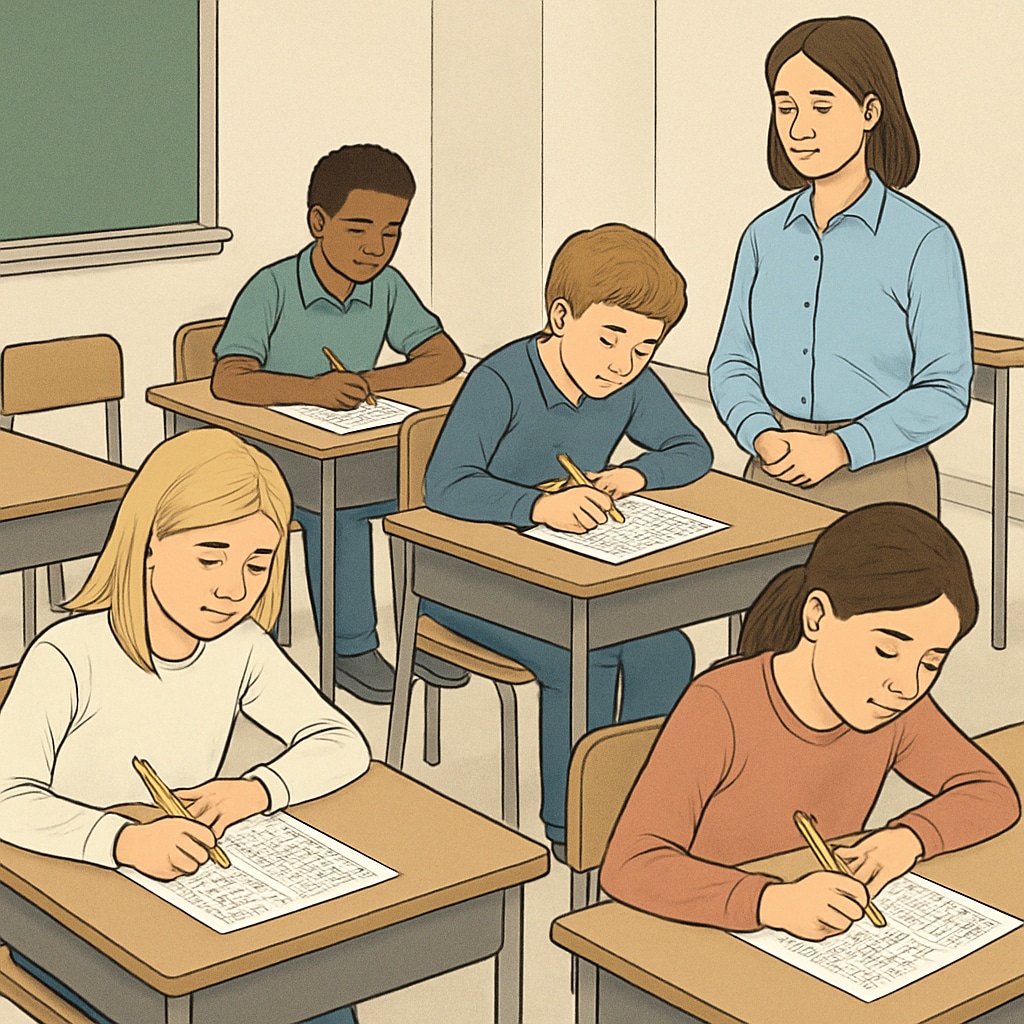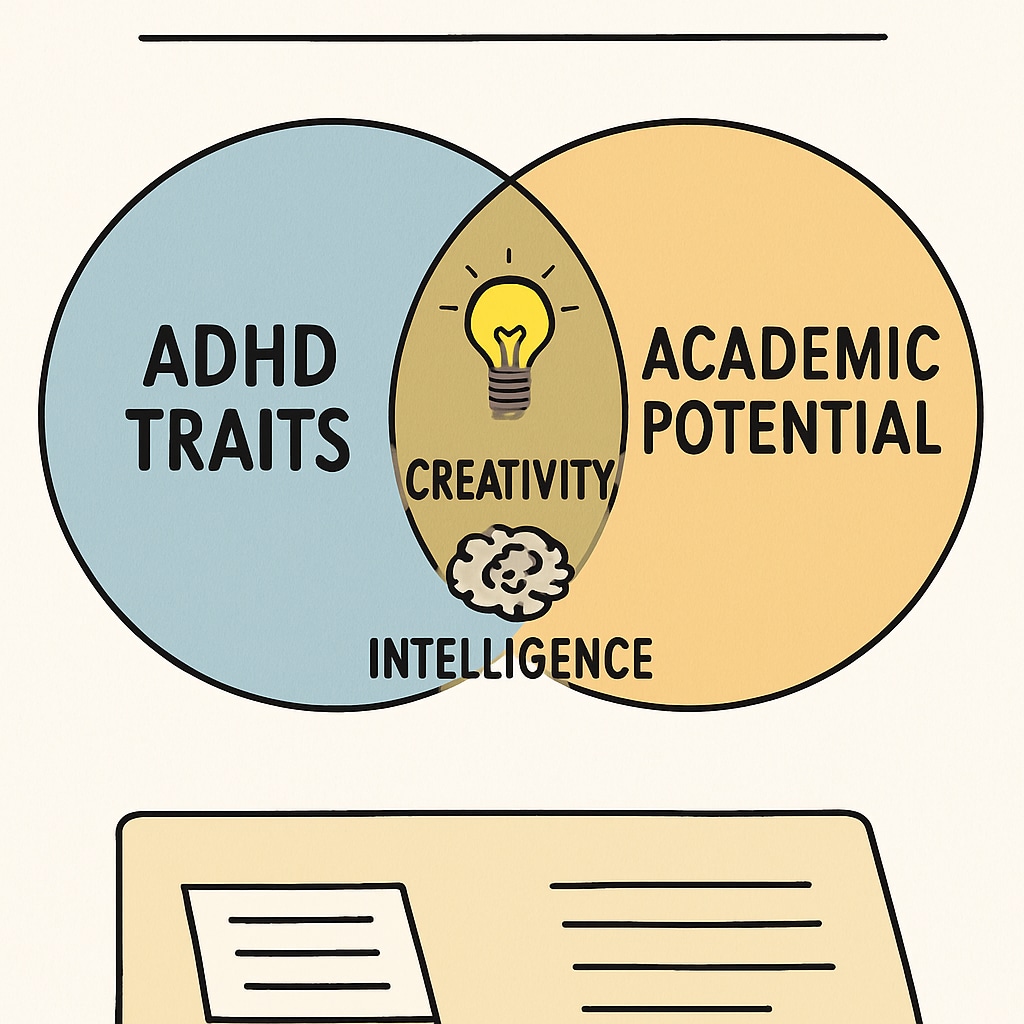Gifted programs are designed to nurture exceptional talent, relying heavily on standardized tests to identify candidates. However, this approach often fails to account for the unique challenges faced by students with ADHD (Attention Deficit Hyperactivity Disorder). Despite excelling in standardized exams, many ADHD students remain excluded due to behavioral misinterpretations or rigid selection criteria. This article explores how current systems overlook high-potential ADHD individuals and advocates for more inclusive talent identification processes.

Challenges in Current Gifted Program Selection Criteria
Gifted programs typically prioritize academic performance and standardized test scores as primary indicators of talent. While effective for identifying conventional high achievers, this method often lacks the nuance to recognize exceptional abilities in nontraditional candidates, such as those with ADHD. For example:
- ADHD students may excel in specific areas like problem-solving or creativity but struggle with sustained attention.
- Behavioral traits, such as impulsivity or restlessness, may be misinterpreted as a lack of discipline rather than symptoms of ADHD.
- Rigid testing environments may fail to showcase the full range of abilities these students possess.
As a result, students who could greatly benefit from specialized programs are often excluded, perpetuating a cycle of missed opportunities.
ADHD and Academic Potential: A Case Study
Consider the case of Emily, a fourth-grade student diagnosed with ADHD. Emily’s teachers described her as “distracted” and “disruptive,” yet her standardized test scores revealed exceptional mathematical reasoning and verbal aptitude. Despite these results, Emily was excluded from her school’s gifted program due to concerns about her ability to conform to its structured curriculum. This decision not only overlooked Emily’s strengths but also denied her access to resources that could help her thrive.
Emily’s story is not unique. Research from organizations like The National Association for Gifted Children shows that ADHD students often perform above average in creative and intellectual tasks but are underrepresented in gifted education programs. This discrepancy highlights the need for a more holistic approach to talent identification.

Moving Toward Inclusive Identification Processes
To address these issues, educators and policymakers must rethink the criteria used for gifted program selection. The following strategies could help ensure that high-potential ADHD students are recognized and supported:
- Multi-faceted Assessment: Incorporate evaluations of creativity, problem-solving, and emotional intelligence alongside standardized tests.
- Behavioral Context: Train educators to differentiate ADHD-related behaviors from a lack of ability or interest.
- Flexible Classroom Environments: Design programs that accommodate diverse learning styles, including those of neurodivergent students.
- Parental and Specialist Input: Include insights from parents and ADHD specialists during the selection process.
By implementing these strategies, schools can create a more inclusive system that recognizes and nurtures the potential of all students, regardless of their behavioral or cognitive differences.
The Broader Implications for Education Systems
Excluding ADHD students from gifted programs not only impacts individual lives but also deprives society of innovative thinkers and problem-solvers. Individuals with ADHD often exhibit traits such as hyperfocus, creativity, and unconventional thinking—qualities that are invaluable in fields ranging from technology to the arts. Failing to cultivate these abilities limits the diversity of talent in educational and professional spaces.
As a result, educators must view ADHD not as a barrier but as an opportunity to explore alternative perspectives. By embracing inclusive practices, schools can help all students reach their full potential while enriching society as a whole.
In conclusion, the current reliance on standardized testing for gifted program selection inadvertently excludes ADHD students who demonstrate unique forms of brilliance. Reforming these processes to account for diverse talents is not only fair but essential for fostering innovation and creativity in future generations.
Readability guidance: Use short paragraphs and clear lists to summarize key points. Incorporate examples to illustrate real-world implications of ADHD exclusion in gifted programs. Ensure transitions guide readers smoothly between sections.


